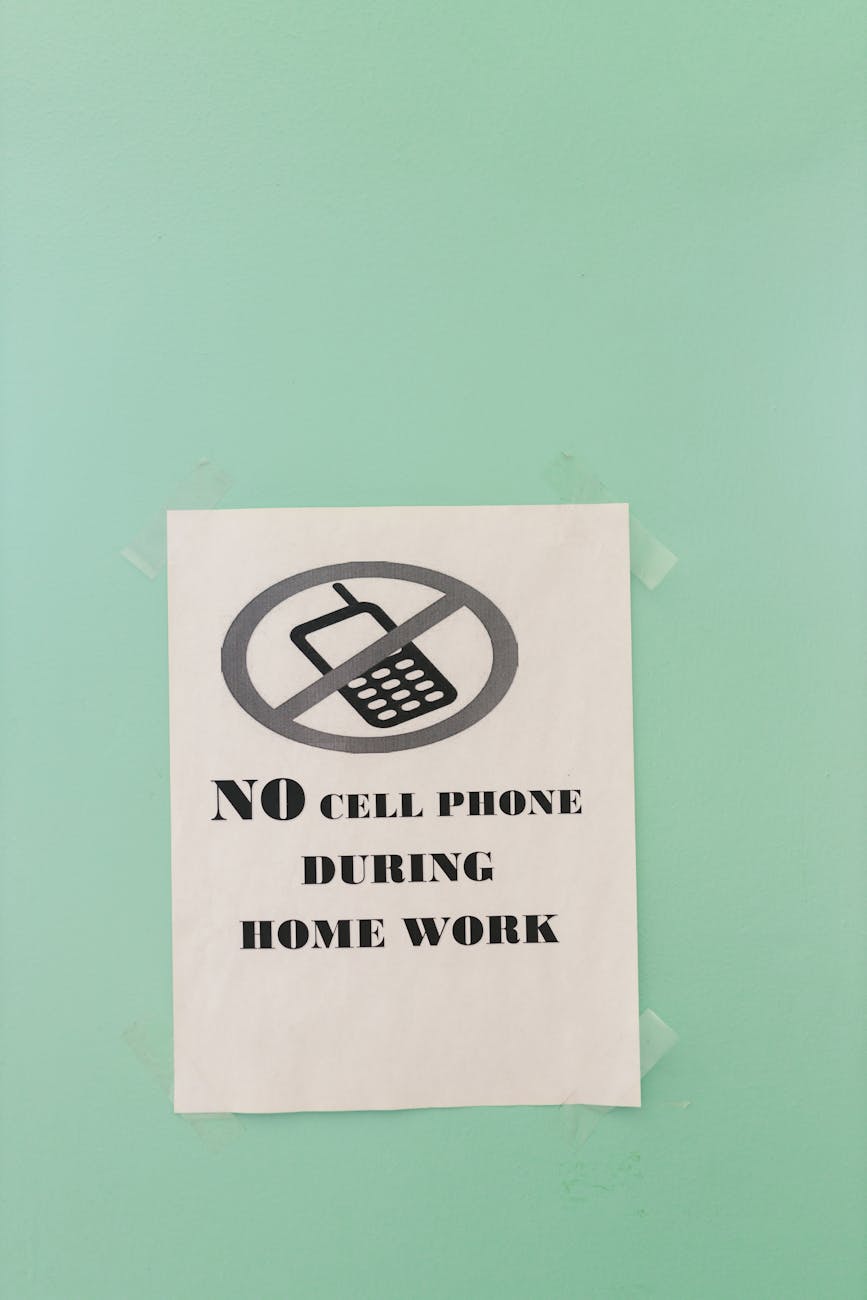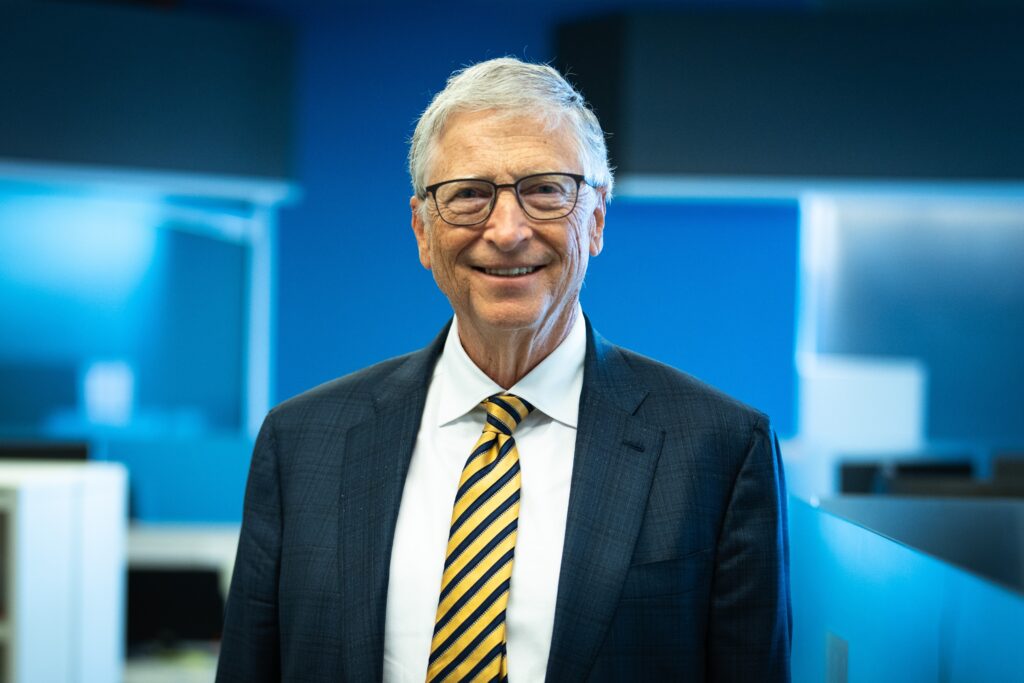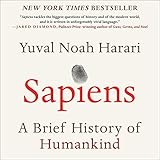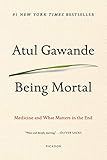- Adobe to automatically move subscribers to pricier, AI-focused tier in June
- Secretary of Homeland Security Kristi Noem has no clue what ‘habeas corpus’ is and has the worst possible take on what it might be
- Instead of Banning Cellphones in School, Our Connecticut District Embraced Them
- The meritocracy to eugenics pipeline
Tag: edtech
Hochul’s Cellphone Ban: More Control, Less Freedom

New York Gov. Kathy Hochul wants a statewide, bell-to-bell cellphone ban in schools, dictating how every district, student, and teacher handles devices. But the New York Senate is pushing back, demanding flexibility for schools and ensuring students won’t be suspended over cellphone violations.
The governor claims she’s doing what “parents and teachers want.” But let’s be honest: this isn’t about education but control. Schools already have policies. Local educators, not politicians, should decide what works best for their students.
Let’s break it down:
📵 Banning cellphones won’t fix student disengagement. The real problems—underfunded schools, high-stakes testing, economic stress, and a lack of mental health support—remain untouched.
📵 A one-size-fits-all ban ignores real student needs. Many students use phones for accessibility tools, translations, medical needs, family contact, and learning resources.
📵 Enforcement will fall on teachers and create unnecessary conflict. Instead of teaching, they’ll be the “phone police.”
Yes, social media addiction is a real issue. But banning tech won’t solve systemic failures in education. If Hochul cared about student well-being, she’d invest in smaller class sizes, more counselors, and policies that treat kids like humans, not distractions.
Good on the NY Senate for fighting back. Educators and communities should make school decisions—not politicians looking for a quick-fix headline.
The Eclectic Educator is a free resource for everyone passionate about education and creativity. If you enjoy the content and want to support the newsletter, consider becoming a paid subscriber. Your support helps keep the insights and inspiration coming!
Links for Wednesday, March 12, 2025
What Happens if Google Loses Chrome?
You may not know it, but Google has been part of an ongoing DOJ antitrust case.
According to the most recent filings, Google may be forced to fully divest itself of the Chrome web browser.
Imagine waking up to a web without Chrome. With Google potentially losing control of the world’s most popular browser—used daily by 3.4 billion people—the ripple effects could be profound, especially in education.
Schools relying heavily on Chromebooks could face immediate disruption.
This shift could usher in a new era of innovation. Education-focused browsers or open-source platforms might emerge, enhancing student privacy, accessibility, and user experience. Educators could rethink their technology strategies, potentially adopting more flexible and privacy-centric tools like Mozilla Firefox or exploring open platforms like Brave.
Change at this scale is rarely comfortable, but it often accelerates growth. The key question isn’t whether schools can handle the disruption—it’s how creatively and effectively they adapt.
How AI is Disrupting Business and the Global Economy: Must-Read Books for the Future

Artificial intelligence is not just a technological breakthrough—it is reshaping industries, redefining jobs, and transforming economies worldwide. Businesses and policymakers are grappling with AI’s immense potential and disruptive power. These books provide essential insights into how AI is influencing the global economy and business landscape.
The Big Nine: How the Tech Titans and Their Thinking Machines Could Warp Humanity – Amy Webb
Amy Webb provides a compelling analysis of the nine companies dominating AI development: Google, Amazon, Facebook, Apple, Microsoft, and China’s BAT—Baidu, Alibaba, and Tencent. She explores how these tech giants are steering AI in ways that could benefit humanity or lead to unintended consequences.
This book offers a stark warning about the lack of global AI governance and the risks of AI monopolies. Webb argues that the power concentrated in these companies could shape the future of economies and societies in ways that we are not fully prepared for. Her thought-provoking insights make this an essential read for anyone concerned about the intersection of AI, business, and policy.
- Audible Audiobook
- Amy Webb (Author) – Amanda Dolan (Narrator)
- English (Publication Language)
- 03/05/2019 (Publication Date) – Hachette Audio (Publisher)
AI Superpowers: China, Silicon Valley, and the New World Order – Kai-Fu Lee
Kai-Fu Lee, a renowned AI expert and venture capitalist, compares the AI advancements in China and the U.S., illustrating how these two superpowers compete for AI dominance. He outlines how AI-driven automation will impact worldwide jobs, industries, and economic structures.
Lee’s background in Silicon Valley and China provides a unique perspective on how AI drives innovation and economic transformation. He also explores how AI will disrupt traditional employment structures, arguing that societies must rethink work and income distribution. This book is crucial for understanding the global AI arms race and its implications for the future.
- Lee, Kai-Fu (Author)
- English (Publication Language)
- 288 Pages – 09/14/2021 (Publication Date) – Harper Business (Publisher)
Prediction Machines: The Simple Economics of Artificial Intelligence – Ajay Agrawal, Joshua Gans, & Avi Goldfarb
This book uses an economic framework to explain AI’s impact on the economy. The authors argue that AI fundamentally lowers the cost of prediction, transforming decision-making in business and society.
By focusing on AI as an economic tool, this book makes the case that AI is not just a futuristic technology but a fundamental shift in how businesses operate. It provides actionable insights into how companies can integrate AI to improve efficiency, reduce costs, and drive innovation.
- Hardcover Book
- Agrawal, Ajay (Author)
- English (Publication Language)
- 304 Pages – 11/15/2022 (Publication Date) – Harvard Business Review Press (Publisher)
The Age of AI: And Our Human Future – Henry Kissinger, Eric Schmidt, & Daniel Huttenlocher
This book, written by a former U.S. Secretary of State, a former Google CEO, and an MIT professor, explores AI’s profound implications for global politics, economics, and society. The authors discuss how AI is changing business, governance, and international relations, making it a must-read for those interested in AI’s role in shaping the world order.
The book emphasizes that AI is not just a tool but a transformative force that will redefine industries and challenge traditional notions of leadership and strategy. Its broad perspective makes it valuable for business leaders, policymakers, and anyone interested in AI’s long-term consequences.
- Amazon Kindle Edition
- Kissinger, Henry A (Author)
- English (Publication Language)
- 220 Pages – 11/02/2021 (Publication Date) – Little, Brown and Company (Publisher)
Why These Books Matter
Understanding AI’s business and economic impact is essential for entrepreneurs, executives, and policymakers. These books provide a comprehensive view of how AI disrupts industries, reshapes economies, and challenges existing business models. Whether you are a business leader or just curious about AI’s broader implications, these books will equip you with the knowledge needed to navigate the AI-driven future.
Have you read any of these books? Do you have other recommendations on AI’s impact on business and the economy? Let’s discuss in the comments!
Bill Gates’ Book Recommendations: A Curated Reading List from a Visionary Thinker

Bill Gates, co-founder of Microsoft and one of the world’s most prominent philanthropists, is as well-known for his voracious reading habits as he is for his technological and humanitarian achievements. Through his blog, Gates Notes, Gates regularly shares his insights on the books he’s reading, spanning a wide range of topics, including science, history, health, and personal development. Below is a curated list of some of Gates’ standout recommendations and a brief overview of why these books caught his attention.
Science and Technology
Sapiens: A Brief History of Humankind by Yuval Noah Harari
Gates praises Harari’s ability to synthesize complex historical and evolutionary concepts into an engaging narrative. The book explores humanity’s journey from hunter-gatherers to the modern age, providing insights into how our species has shaped and been shaped by the world around us. It dives into the cognitive revolution, agricultural advancements, and industrial transformations that have defined human history.
- Audible Audiobook
- Yuval Noah Harari (Author) – Derek Perkins (Narrator)
- English (Publication Language)
- 08/15/2017 (Publication Date) – HarperAudio (Publisher)
What makes this book stand out to Gates is its ability to connect the dots between science, sociology, and history in a way that feels accessible and thought-provoking. It raises important questions about where humanity is headed and challenges readers to think critically about our impact on the planet and each other.
The Gene: An Intimate History by Siddhartha Mukherjee
A favorite for its exploration of genetics and its profound implications for humanity, Gates appreciates how Mukherjee combines science with personal anecdotes. The book traces the history of genetic research, from Gregor Mendel’s pea plants to the groundbreaking Human Genome Project, shedding light on how genes influence everything from our appearance to our susceptibility to diseases.
- Mukherjee, Siddhartha (Author)
- English (Publication Language)
- 608 Pages – 05/02/2017 (Publication Date) – Scribner (Publisher)
Gates is particularly drawn to Mukherjee’s ability to humanize science, weaving together stories of scientists and patients to show the real-world implications of genetic discoveries. It’s a compelling read that bridges the gap between complex science and personal storytelling.
How to Avoid a Climate Disaster by Bill Gates
While Gates authored this book, it reflects his deep commitment to addressing climate change. It’s a practical guide to achieving net-zero emissions, outlining actionable steps for governments, businesses, and individuals. Gates emphasizes the urgency of innovation in energy production, storage, and consumption to mitigate the effects of global warming.
- Gates, Bill (Author)
- English (Publication Language)
- 272 Pages – 08/23/2022 (Publication Date) – Vintage (Publisher)
Through detailed analysis and case studies, the book provides a hopeful yet realistic blueprint for tackling one of the world’s biggest challenges. Gates uses his platform to inspire readers to consider their role in creating a sustainable future.
History and Biography
The Better Angels of Our Nature: Why Violence Has Declined by Steven Pinker
Gates often references this book for its optimistic view on the decline of violence over human history. Backed by extensive data and analysis, Pinker argues that humanity is living in one of the most peaceful eras ever, thanks to advancements in governance, trade, and cultural norms.
This book resonates with Gates because of its data-driven approach to optimism, a perspective that aligns with his views on progress. Pinker’s meticulous research and engaging writing style make it a must-read for anyone seeking to understand the trajectory of human civilization.
Leonardo da Vinci by Walter Isaacson
Gates admires Isaacson’s biography for portraying Leonardo’s insatiable curiosity and diverse talents. The book delves into da Vinci’s life as a painter, scientist, and inventor, revealing the genius behind iconic works like the Mona Lisa and The Last Supper.
- Amazon Kindle Edition
- Isaacson, Walter (Author)
- English (Publication Language)
- 808 Pages – 10/17/2017 (Publication Date) – Simon & Schuster (Publisher)
For Gates, this biography is not just a look at Leonardo’s accomplishments but a study of how curiosity and interdisciplinary thinking can drive innovation. It inspires readers to nurture their own curiosity and creativity.
Economics and Business
Factfulness: Ten Reasons Were Wrong About the World and Why Things Are Better Than You Think by Hans Rosling
This book profoundly resonates with Gates due to its data-driven optimism about the state of the world and its call for informed decision-making. Rosling and his co-authors use engaging stories and statistics to debunk misconceptions about global trends, such as poverty, health, and education.
- Rosling, Hans (Author)
- English (Publication Language)
- 352 Pages – 04/07/2020 (Publication Date) – Flatiron Books (Publisher)
Gates appreciates how the book empowers readers with the tools to think critically about the information they consume. It’s a refreshing reminder that, despite our challenges, progress is happening on many fronts.
Business Adventures by John Brooks
Gates has called this his favorite business book of all time. It’s a collection of fascinating stories from the business world, offering timeless lessons on risk, leadership, and resilience. Each chapter examines a specific company or event, from Ford’s Edsel debacle to the rise of Xerox.
- Hardcover Book
- John Brooks (Author)
- English (Publication Language)
- 461 Pages – 01/01/2014 (Publication Date) – Open Road Integrated Media (Publisher)
What Gates finds most compelling is how Brooks captures the human side of business, showing how decisions made under pressure can lead to triumphs and failures. The lessons in this book remain relevant for today’s entrepreneurs and executives.
Health and Global Development
Enlightenment Now: The Case for Reason, Science, Humanism, and Progress by Steven Pinker
Another Pinker title, this book’s focus on progress aligns closely with Gates’ belief in innovation and science as drivers of positive change. Pinker argues that the principles of the Enlightenment—reason, science, and humanism—have led to remarkable advancements in human welfare.
- Pinker, Steven (Author)
- English (Publication Language)
- 576 Pages – 01/15/2019 (Publication Date) – Penguin Books (Publisher)
Gates values the book’s thorough analysis and optimistic tone, making it a compelling read for anyone interested in humanity’s future. It’s a powerful reminder of what we can achieve through collaboration and evidence-based thinking.
Being Mortal: Medicine and What Matters in the End by Atul Gawande
Gates appreciates this book’s compassionate exploration of end-of-life care and its implications for healthcare systems. Gawande examines how modern medicine often prioritizes prolonging life over quality of life, and he advocates for a more patient-centered approach.
- Gawande, Atul (Author)
- English (Publication Language)
- 304 Pages – 09/05/2017 (Publication Date) – Metropolitan Books (Publisher)
For Gates, this book highlights the importance of empathy and innovation in addressing one of the most challenging aspects of healthcare. It’s a thought-provoking read that resonates with both professionals and lay readers.
Fiction Favorites
The Rosie Project by Graeme Simsion
A rare fiction pick from Gates, this humorous and heartwarming story about a socially awkward professor resonates with readers on many levels. The protagonist’s journey to find love through a structured “Wife Project” is endearing and thought-provoking.
- Simsion, Graeme (Author)
- English (Publication Language)
- 295 Pages – 06/03/2014 (Publication Date) – Marysue Rucci Books (Publisher)
Gates enjoys this book for its lighthearted exploration of human relationships and the quirks that make us unique. It’s a reminder that sometimes, stepping outside our comfort zones can lead to unexpected joy.
Why Read Like Bill Gates?
Gates’ reading list reflects his endless curiosity and commitment to learning. By diving into these books, you gain insights into the subjects that have shaped his thinking and approach to solving global challenges. From understanding climate science to exploring humanity’s history, these titles offer valuable knowledge and inspiration.
To follow Bill Gates’ recommendations and reflections, visit his blog, Gates Notes. Whether you want to broaden your horizons or deepen your expertise, Gates’ reading list is a great place to start.
What’s next on your reading list? Let us know in the comments, and stay tuned for more curated book recommendations from leading thinkers and innovators!
The Eclectic Educator is a free resource for everyone passionate about education and creativity. If you enjoy the content and want to support the newsletter, consider becoming a paid subscriber. Your support helps keep the insights and inspiration coming!
Drones over New Jersey? Here’s the original UFO tale…
“We have no evidence at this time that the reported drone sightings pose a national security or public safety threat or have a foreign nexus,” declared the FBI and the Department of Homeland Security
Sure, folks. Nothing to fear here…
This isn’t the first time flying objects have been reported over New Jersey. In 1938, Orson Welles’ “War of the Worlds” radio broadcast made people panic.
Here it is, remastered for your listening pleasure…
The Eclectic Educator is a free resource for everyone passionate about education and creativity. If you enjoy the content and want to support the newsletter, consider becoming a paid subscriber. Your support helps keep the insights and inspiration coming!
Will AI Transform Teaching and Learning?

Larry Cuban has some great thoughts–as always–on the potential of AI to change education.
Yet there is little evidence that classroom use of these previous technologies forced classroom teachers to rethink, much less reshape, instruction. Nor have I found convincing evidence that these technologies altered fundamentally how teachers teach, increased student engagement, or raised test scores.
So I have concluded that those pushing AI use in classrooms fail to understand the complexity of teaching.
Yes, there have been any number of technological revolutions meant to forever change the landscape of teaching and learning. Most of these revolutions have fallen by the wayside or have never seen their true potential realized. I’m looking at you, 1:1 computing initiatives.
I’m of the mind that the failures of these technologies to revolutionize teaching and learning don’t fall on the technologies. They are, after all, just tools with no consciousness, no agenda, and no determination of how best to use them.
That part is up to us, the human implementors of said tools. When we can’t figure out how to leverage tools properly or, as is far more often the case, refuse to implement the tools, failure is assured.
Far too often, I hear the argument from some teachers that, “What I’m doing works, and I don’t need to learn anything new,” or the ever-so-sinister, “I only do my learning in the summer and don’t have time for this.”
Perhaps most damnable is this statement: “Technology has never been shown to increase test scores, so we don’t need to use it.”
Because all we’re worried about is test scores. And that’s the real problem.
The Eclectic Educator is a free resource for everyone passionate about education and creativity. If you enjoy the content and want to support the newsletter, consider becoming a paid subscriber. Your support helps keep the insights and inspiration coming!
OpenAI partners with Wharton for a new course focused on leveraging ChatGPT for teachers

OpenAI has partnered with the University of Pennsylvania’s Wharton School to launch a new course titled “AI in Education: Leveraging ChatGPT for Teaching.” This initiative aims to empower educators to effectively integrate generative AI into their teaching practices, enhancing learning experiences.
The class is just as much about what you as a teacher can do with AI to make your life better and make you a more effective educator, a less stressed out educator, as much as it is about how do you create assignments for your students? – Ethan Mollick
Professors Lilach and Ethan Mollick, co-founders of Wharton’s generative AI lab, co-teach the course. They emphasize the program’s dual focus: assisting educators in using AI to improve their teaching efficiency and developing assignments that engage students with AI tools.
Ethan Mollick notes that while discussions about AI in education often center on concerns like cheating and plagiarism, the course aims to highlight AI’s positive transformations to pedagogy. By embracing AI, educators can create more dynamic and personalized learning environments.
This collaboration reflects a broader trend in higher education to adapt to technological advancements and prepare educators and students for the evolving landscape of AI in the classroom.
The Eclectic Educator is a free resource for everyone passionate about education and creativity. If you enjoy the content and want to support the newsletter, consider becoming a paid subscriber. Your support helps keep the insights and inspiration coming!
How Open Education Can Support Digital Literacy

Open Education isn’t just about creating and using free tools for education. It’s about connecting with the ideas around open education and open source to create a more equitable space for us all.
Clint Lalonde shares two ideas on how open education can support digital literacy skills, as outlined in the British Columbia post-secondary Digital Literacy Framework.
While the first idea of having students edit/add Wikipedia articles is great, the second one, using GenAI tools to modify open texts, is a winner.
The second example I used focused on educators, and I picked a more contemporary example of using an open textbook with Generative AI to develop ancillary support materials using the open textbook as the reference material. When I was at the Open Education conference in Providence a few weeks ago, there were a few presentations about how educators are using GenAI with openly licensed materials to modify, adapt, or create ancillary resources. A particularly powerful example of this is instructors uploading a chapter of an openly licensed textbook to a GenAI tool, then asking the tool to rewrite the chapter to adjust the reading level.
And here is his full CC-BY licensed slide deck.
The Eclectic Educator is a free resource for everyone passionate about education and creativity. If you enjoy the content and want to support the newsletter, consider becoming a paid subscriber. Your support helps keep the insights and inspiration coming!








![The Better Angels of Our Nature: Why Violence Has Declined [Steven Pinker]-Paperback](https://m.media-amazon.com/images/I/51dsAFYbeXL._SL160_.jpg)





